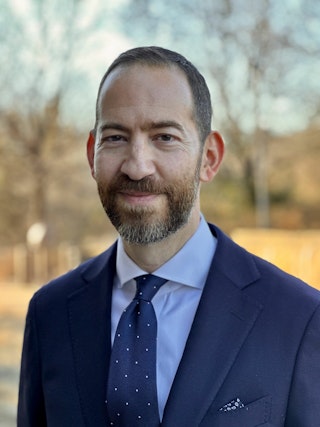Editor’s Note
The Case for Engagement

As the recent congressional battle over whether to send more aid to Ukraine, Israel, and Taiwan showed, Americans are once again debating what role their country should play abroad. That may not seem like anything new; after all, U.S. leaders have argued for decades over the specifics of particular foreign policies. But throughout that period, most American policymakers agreed on a few basic, underlying principles, including the need for the United States to play an active international role. In the last decade, however, something has changed.
Today, some prominent U.S. figures espouse the kind of open isolationism rarely heard in this country since before World War II. Given the rising skepticism toward engagement on both the right and the left, we decided that this was an important moment to revisit many of the reasons why – and how – U.S. leadership still matters around the planet.
Our authors tackle the question from a broad range of angles. In “How to remain the innovation nation,” the Bush Institute’s Cullum Clark makes a data-driven case for why U.S. dominance of science and technology R&D is so important – and explains what the country must do to maintain it. Scott Carpenter, Managing Director of Jigsaw, also takes on technology: in his case, how autocratic nations are threatening a free and open internet, and how democracies can defend against this threat.
In “The fight to keep the world free,” David J. Kramer, Executive Director of the Bush Institute, describes America’s long-established role as a defender of human rights. While the country has made its share of mistakes, he argues, its contributions have been invaluable. Today – with multiple wars raging, dictatorships on the rise, and many democracies backsliding – those contributions are more important than ever.
Several of our authors take the reader deep into specific regions, exploring how U.S. leadership in those places has played a positive role in the past and what the opportunities for engagement look like today. Jendayi Frazer, a former U.S. Assistant Secretary of State for African Affairs, describes how Washington should rethink that continent. Rather than see it as a humanitarian problem, she argues, the United States should treat Africa as a strategic priority, engaging Africans with respect and helping them unlock their region’s vast potential. Antonio Garza – a former U.S. Ambassador to Mexico – sees similarly vast potential in the Western Hemisphere. In “The overlooked Americas,” he shows why the time is right for greater U.S. involvement in its own neighborhood. Former U.S. Sen. Kay Bailey Hutchison – who also served as U.S. Ambassador to NATO – stresses the importance of alliances by highlighting the ways they make the United States stronger. In an exclusive interview, Toomas Hendrik Ilves – President of Estonia from 2006-2016 – describes just how vital U.S. support remains for Ukraine and eastern Europe. (His message, in short, is we can stop Russia there – or fight it somewhere much closer to home in the future.) And Natalie Gonnella-Platts, Director of Global Policy at the Bush Institute, describes how two years after the U.S. withdrawal from Afghanistan, the United States can and should still make a difference there by using its leverage to limit the Taliban’s criminal ambitions.
Given the scale of the challenges we face, it’s probably not surprising that some Americans are choosing, once again, to turn their faces inward. But ignoring the world would be a dangerous mistake – one neither the United States nor other countries can afford. On a lighter note, Ken Hersh, President and CEO of the Bush Center, calls on his fellow citizens to once more lead the charge by taking leadership lessons from an American he finds particularly inspiring: none other than Taylor Swift.
We hope you enjoy reading this vital set of essays as much as we did putting them together. And, as always, I look forward to hearing your thoughts.
The Catalyst believes that ideas matter. We aim to stimulate debate on the most important issues of the day, featuring a range of arguments that are constructive, high-minded, and share our core values of freedom, opportunity, accountability, and compassion. To that end, we seek out ideas that may challenge us, and the authors’ views presented here are their own; The Catalyst does not endorse any particular policy, politician, or party.

